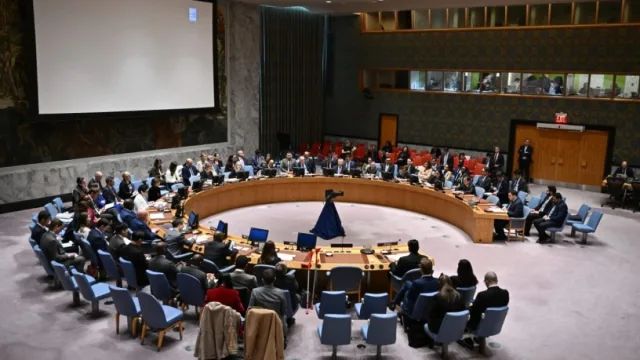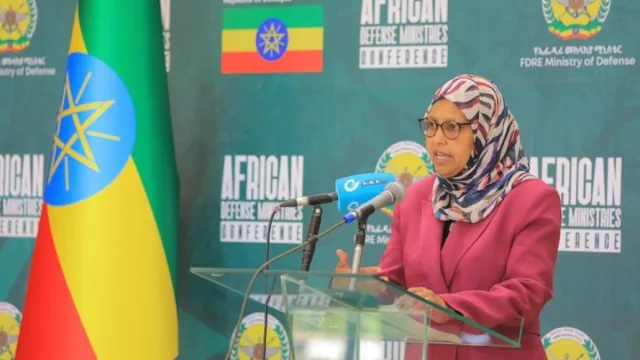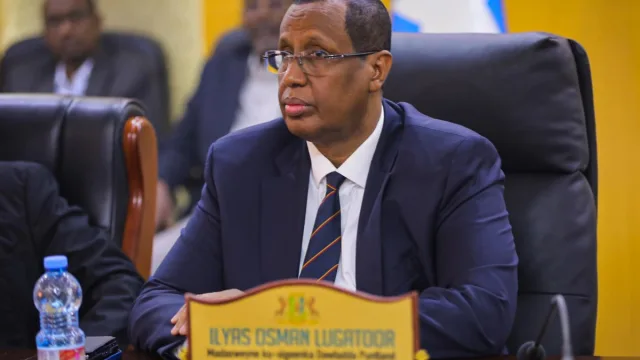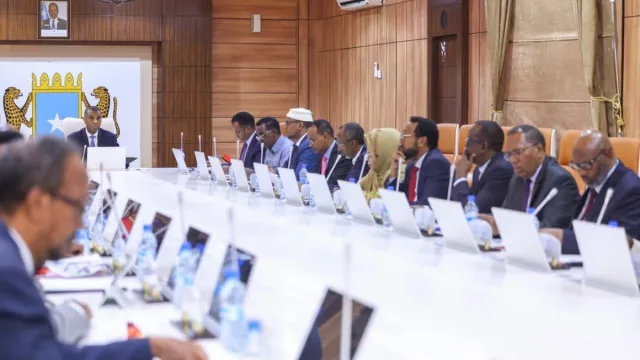The number of people seeking mental health treatment has increased in Bosasso, the commercial capital of…
 The number of people seeking mental health treatment has increased in Bosasso, the commercial capital of Somalia’s autonomous region of Puntland, despite the existence of only one small health unit, officials said.
The number of people seeking mental health treatment has increased in Bosasso, the commercial capital of Somalia’s autonomous region of Puntland, despite the existence of only one small health unit, officials said.
“We have only two rooms; one for males and one for females, with five beds each,” Abdulkadir Khalif Ali, the nurse who manages the Bosasso general hospital’s mental health wing. “The demand is rising; there are days when I have 20 or 30 patients, some requiring hospitalization, but I have to release them because there is no space.”
Ali, the only qualified medical employee in the unit, told IRIN there was no psychiatrist. “I do almost everything a doctor would do,” he added. “But we could do with one, no question.”
The hospital recorded some 844 patients in 2009, despite the lack of mental health facilities and staff.
Francesca Rivelli of the protection sector, psycho-social support and mental health, of the NGO Gruppo per le Relazioni Transculturali (GRT), told IRIN the hospital was far too inadequate for the number of people it served.
“It is too small if we consider the inhabitants of Bosasso and moreover if we consider that the MHD [mental health department] at Bosasso hospital also serves people from all over Puntland and south-central Somalia,” she said.
GRT set up the mental illness unit in 2004 and supported it up to 2008 when it stopped the support due to lack of donor funding. “There is support for malaria, TB and HIV/Aids but not so much for mental health,” Rivelli.
Cases of post-stress traumatic syndrome have increased in Somalia mainly because there has been an increase in insecurity since the fall of the Siad Barre government in 1991, coupled with sporadic clashes, displacement and the daily uncertainty and violence in an impoverished environment, she said.
“In Somalia we’re also talking about a long-standing and unique combination of harsh conditions…” said Rivelli.
Abdukadir Khalif Ali, a qualified psychiatric nurse at Bossaso general hospital’s mental health unit
Lack of interest
Ali said most of his patients displayed an array of mental illnesses such as psychosis, mood disorders, substance abuse, depression, neurosis and epilepsy.
Unfortunately, not many aid organizations in Puntland, he added, were interested in mental health issues. “I think they are more comfortable in other areas, such as FGM/C [female genital mutilation/cutting] and other easier-to-understand diseases.”
Rivelli, however, said it should not be too difficult or costly to work in the mental health sector “through fine-tuned support initiatives at secondary health system level, namely strengthening the services provided by the local MHD.
“At the outset of the intervention, it is necessary to rely on motivated and qualified medical staff providing incentives both money-wise and in terms of motivation in coordination with the hospital system, to stop the turnover and brain-drain of the already few human resources,” she added.
Secondly, having psychotropic drugs provided by international agencies and donors would boost the quality of treatment offered to the patients.
There was also a need to carry out the clinical and social work side by side with professional workers such as health workers and counsellors.
Running out of drugs
Ismahan Nur had brought her 30-year-old brother-in-law from the town of Galkayo, 750km south of Bosasso, to the hospital. He had been sick for more than two years and the family tried traditional means to cure him. “We tried everything but he only got worse. He stopped eating, was not sleeping and was suspicious of everybody.”
They brought him to the hospital in January and he was put on medication for schizophrenia, according to Ali. “He is much better now. He is lucid, eating and sleeping well.”
Ali, however, warned that the hospital was running out of drugs. “We have started telling people to buy the drugs from the town,” adding that most of the patients could not afford medicines.
According to Rivelli, in the past three years only the European Union and World Health Organization had allocated funds to some interventions in mental health in Somalia; “thus the overall budget allocated is negligible compared to the needs”.
Most of that supported running costs of existing but neglected facilities, drugs, training and education campaigns, such as the initiative to free patients from being chained.
A great deal had to be done to improve mental health in Somalia. “Referral mechanisms to bridge the gap between rural and urban areas; community-based mental health programmes and research on the use of khat, gender and mental health, ex-combatants and mental health,” she said. (IRIN)





